The Scientific board members are expected to contribute as scientific advisors, helping to guide IDEAs- Africa Network (IDAN’s) research, training and other scientific programs. They also facilitate contacts between IDAN and partner institutions, civil society organizations and policymakers on the continent and beyond.
Abena D. Oduro
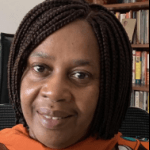 Abena D. Oduro is an Associate Professor in the Department of Economics, University of Ghana. She holds an MLitt. in Economics from the University of Glasgow, Scotland, UK. Her main areas of research are poverty and inequality analysis, gender and assets, unpaid care work, international trade policy and WTO issues. She is a member of the African Centre for Excellence in Inequality Research (ACEIR).
Abena D. Oduro is an Associate Professor in the Department of Economics, University of Ghana. She holds an MLitt. in Economics from the University of Glasgow, Scotland, UK. Her main areas of research are poverty and inequality analysis, gender and assets, unpaid care work, international trade policy and WTO issues. She is a member of the African Centre for Excellence in Inequality Research (ACEIR).
Adebayo Olukoshi
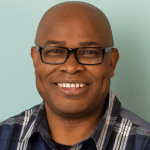 Adebayo Olukoshi has more than 35 years of experience in the area of international relations, governance and human rights, both in the academic sector and in intergovernmental institutions. Olukoshi was a member of the African Union Assessment Panel and Chair of the Board of several Think Tanks, including European Centre for Development Policy Management and Open Society Initiative for West Africa. He also previously served as Director of the UN African Institute for Economic Development and Planning, as Executive Director of the Africa Governance Institute, as Executive Secretary of the Council for Development of Social Science Research in Africa, as Director of Research at the Nigerian Institute of International Affairs; Senior Research Fellow/Research Programme Coordinator of the Nordic Africa Institute in Uppsala, and Senior Programme Staff at the South Centre in Geneva.
Adebayo Olukoshi has more than 35 years of experience in the area of international relations, governance and human rights, both in the academic sector and in intergovernmental institutions. Olukoshi was a member of the African Union Assessment Panel and Chair of the Board of several Think Tanks, including European Centre for Development Policy Management and Open Society Initiative for West Africa. He also previously served as Director of the UN African Institute for Economic Development and Planning, as Executive Director of the Africa Governance Institute, as Executive Secretary of the Council for Development of Social Science Research in Africa, as Director of Research at the Nigerian Institute of International Affairs; Senior Research Fellow/Research Programme Coordinator of the Nordic Africa Institute in Uppsala, and Senior Programme Staff at the South Centre in Geneva.
C.P. Chandrasekhar
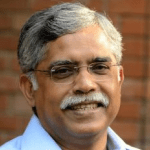 C.P. Chandrasekhar is an economist based in New Delhi and former Professor of Economics at Jawaharlal Nehru University. His areas of interest include the macroeconomics of development and the role of finance and industry in developing countries. He is a regular columnist for Frontline, Business Line, and the Economic and Political Weekly. Among his recent publications are two books titled Demonetisation Decoded: A Critique of India’s Currency Experiment (co-authored and published by Routledge) and Karl Marx’s Capital and the Present: Four Essays (Tulika Books).
C.P. Chandrasekhar is an economist based in New Delhi and former Professor of Economics at Jawaharlal Nehru University. His areas of interest include the macroeconomics of development and the role of finance and industry in developing countries. He is a regular columnist for Frontline, Business Line, and the Economic and Political Weekly. Among his recent publications are two books titled Demonetisation Decoded: A Critique of India’s Currency Experiment (co-authored and published by Routledge) and Karl Marx’s Capital and the Present: Four Essays (Tulika Books).
Crystal Simeoni
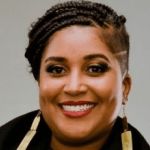 Crystal Simeoni is a Pan-African feminist activist and Director of Nawi – the Afrifem Macroeconomics Collective (The Nawi Collective). She works at the intersection of the technical and the colloquial, of critique and imagination, of knowledge and practice, of language and of the creation of community. She curates the work of the Nawi collective who, in community with other African feminists and organizations, work on
Crystal Simeoni is a Pan-African feminist activist and Director of Nawi – the Afrifem Macroeconomics Collective (The Nawi Collective). She works at the intersection of the technical and the colloquial, of critique and imagination, of knowledge and practice, of language and of the creation of community. She curates the work of the Nawi collective who, in community with other African feminists and organizations, work on
analyzing, influencing and reimagining macro level economic policies and narratives. In her understanding, in her critique and her imagining of a different way, her work is always at the service of life.
Dzodzi Tsikata
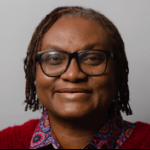 Dzodzi Tsikata is Professor of Development Studies at SOAS, University of London. Before this, she was Professor of Development Sociology and immediate past Director of the Institute of African Studies (IAS) at the University of Ghana. Her research in the last 30 years has been in the areas of gender and development policies and practices; agrarian change and rural livelihoods; the labour relations of the informal economy and transformative social policy. Her recent publications are the co-edited (with Elisabeth Prügl and Fenneke Reysoo) Forum in the Journal of Peasant Studies on the theme “Commercialising Agriculture/Reorganising Gender” (JPS 48,7, September 2021). She is also the Principal Investigator of a pan-African research, networking and advocacy project, the Gender Equitable and Transformative Social Policy for Post-COVID-19 Africa (GETSPA) which is examining the social policy trajectories of thirty-one African countries. She is the secretary of the executive committee of IDEAS and a member of the Agrarian South Network and a member of the editorial collectives of Feminist Africa and Agrarian South: Journal of Political Economy.
Dzodzi Tsikata is Professor of Development Studies at SOAS, University of London. Before this, she was Professor of Development Sociology and immediate past Director of the Institute of African Studies (IAS) at the University of Ghana. Her research in the last 30 years has been in the areas of gender and development policies and practices; agrarian change and rural livelihoods; the labour relations of the informal economy and transformative social policy. Her recent publications are the co-edited (with Elisabeth Prügl and Fenneke Reysoo) Forum in the Journal of Peasant Studies on the theme “Commercialising Agriculture/Reorganising Gender” (JPS 48,7, September 2021). She is also the Principal Investigator of a pan-African research, networking and advocacy project, the Gender Equitable and Transformative Social Policy for Post-COVID-19 Africa (GETSPA) which is examining the social policy trajectories of thirty-one African countries. She is the secretary of the executive committee of IDEAS and a member of the Agrarian South Network and a member of the editorial collectives of Feminist Africa and Agrarian South: Journal of Political Economy.
Fadhel Kaboub
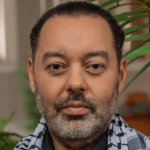 Fadhel Kaboub is an associate professor of economics at Denison University, and the president of the Global Institute for Sustainable Prosperity. He is also a member of the Independent Expert Group on Just Transition and Development, and serves as senior advisor with Power Shift Africa. He has recently served as Under-Secretary-General for Financing for Development at the Organisation of Southern Cooperation in Addis Ababa, Ethiopia. Dr. Kaboub is an expert on designing public policies to enhance monetary and economic sovereignty in the Global South, build resilience, and promote equitable and sustainable prosperity. His recent work focuses on Just Transition, Climate Finance, and transforming the global trade, finance, and investment architecture. His most recent co-authored publication is Just Transition: A Climate, Energy, and Development Vision for Africa (May 2023, published by the Independent Expert Group on Just Transition and Development). He has held a number of research affiliations with the Levy Economics Institute (NY), the \ John F. Kennedy School of Government at Harvard University (MA), the Economic Research Forum (Cairo), Power Shift Africa (Nairobi), and the Center for Strategic Studies on the Maghreb (Tunis). He is currently based in Nairobi, Kenya and is working on climate finance and development policies in Africa. You can follow him on Twitter @FadhelKaboub and you can read his Global South Perspectives on substack where he blogs regularly.
Fadhel Kaboub is an associate professor of economics at Denison University, and the president of the Global Institute for Sustainable Prosperity. He is also a member of the Independent Expert Group on Just Transition and Development, and serves as senior advisor with Power Shift Africa. He has recently served as Under-Secretary-General for Financing for Development at the Organisation of Southern Cooperation in Addis Ababa, Ethiopia. Dr. Kaboub is an expert on designing public policies to enhance monetary and economic sovereignty in the Global South, build resilience, and promote equitable and sustainable prosperity. His recent work focuses on Just Transition, Climate Finance, and transforming the global trade, finance, and investment architecture. His most recent co-authored publication is Just Transition: A Climate, Energy, and Development Vision for Africa (May 2023, published by the Independent Expert Group on Just Transition and Development). He has held a number of research affiliations with the Levy Economics Institute (NY), the \ John F. Kennedy School of Government at Harvard University (MA), the Economic Research Forum (Cairo), Power Shift Africa (Nairobi), and the Center for Strategic Studies on the Maghreb (Tunis). He is currently based in Nairobi, Kenya and is working on climate finance and development policies in Africa. You can follow him on Twitter @FadhelKaboub and you can read his Global South Perspectives on substack where he blogs regularly.
Fiona Tregenna
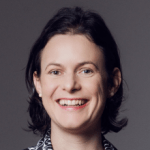 Professor Fiona Tregenna holds the DSI/NRF South African Research Chair in Industrial Development, and is a Professor of Economics at the University of Johannesburg. Her research focuses on issues of structural change, industrialisation and deindustrialisation, and innovation and technological upgrading. She has published widely in leading journals, received awards and grants for her research, led large research projects, co-edited several books, and serves on the editorial boards of various international journals and book series. She sits on many panels, boards and councils, including the African Continental Free Trade Area (AfCFTA) Advisory Council advising on trade and industrial development across Africa, and advising South African President Cyril Ramaphosa on economic policy as a member of his Presidential Economic Advisory Council. Fiona has advised international organisations such as UNIDO, UNCTAD, the United Nations University and the ILO, and has contributed to a number of flagship United Nations reports. She is an elected member of the Academy of Science of South Africa (ASSAf), and sits on several ASSAf bodies. She has a Ph.D. in Economics from the University of Cambridge.
Professor Fiona Tregenna holds the DSI/NRF South African Research Chair in Industrial Development, and is a Professor of Economics at the University of Johannesburg. Her research focuses on issues of structural change, industrialisation and deindustrialisation, and innovation and technological upgrading. She has published widely in leading journals, received awards and grants for her research, led large research projects, co-edited several books, and serves on the editorial boards of various international journals and book series. She sits on many panels, boards and councils, including the African Continental Free Trade Area (AfCFTA) Advisory Council advising on trade and industrial development across Africa, and advising South African President Cyril Ramaphosa on economic policy as a member of his Presidential Economic Advisory Council. Fiona has advised international organisations such as UNIDO, UNCTAD, the United Nations University and the ILO, and has contributed to a number of flagship United Nations reports. She is an elected member of the Academy of Science of South Africa (ASSAf), and sits on several ASSAf bodies. She has a Ph.D. in Economics from the University of Cambridge.
Franklin Obeng-Odoom
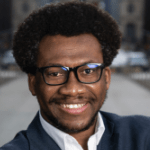 Franklin Obeng-Odoom is currently Professor of Global Development Studies at the University of Helsinki, Finland. Obeng-Odoom’s research interests are centred on the political economy of development, urban and regional economics, natural resources and the environment, fields in which he has written six sole-authored books, including Global Migration Beyond Limits (Oxford University Press, 2022), The Commons in an Age of Uncertainty (University of Toronto Press, 2021) and Property, Institutions, and Social Stratification in Africa (Cambridge University Press, 2020), a winner of the European Association for Evolutionary Political Economy Joan Robinson Prize. Obeng-Odoom is the Global South Editor of Housing Studies, Associate Editor of the Forum for Social Economics, and Series Editor of the Edinburgh Studies in Urban Political Economy. A Docent in Urban and Economic Sociology at the University of Turku, Finland, Dr Obeng-Odoom serves on the editorial boards of the Journal of Economic Issues, and the American Journal of Economics and Sociology, published continuously since 1941. Professor Obeng-Odoom is a Fellow of the Ghana Academy of Arts and Sciences, the oldest learned society in postcolonial Africa, and a Fellow of the Academy of Social Sciences, an assembly of the world’s leading social scientists.
Franklin Obeng-Odoom is currently Professor of Global Development Studies at the University of Helsinki, Finland. Obeng-Odoom’s research interests are centred on the political economy of development, urban and regional economics, natural resources and the environment, fields in which he has written six sole-authored books, including Global Migration Beyond Limits (Oxford University Press, 2022), The Commons in an Age of Uncertainty (University of Toronto Press, 2021) and Property, Institutions, and Social Stratification in Africa (Cambridge University Press, 2020), a winner of the European Association for Evolutionary Political Economy Joan Robinson Prize. Obeng-Odoom is the Global South Editor of Housing Studies, Associate Editor of the Forum for Social Economics, and Series Editor of the Edinburgh Studies in Urban Political Economy. A Docent in Urban and Economic Sociology at the University of Turku, Finland, Dr Obeng-Odoom serves on the editorial boards of the Journal of Economic Issues, and the American Journal of Economics and Sociology, published continuously since 1941. Professor Obeng-Odoom is a Fellow of the Ghana Academy of Arts and Sciences, the oldest learned society in postcolonial Africa, and a Fellow of the Academy of Social Sciences, an assembly of the world’s leading social scientists.
Godwin R. Murunga
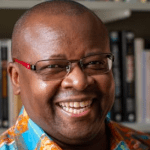
Dr Godwin R. Murunga is a Kenyan historian and political analyst with years of robust scholarship, teaching and management experience. He is currently serving his second term as the 7th Executive Secretary of the Council for the Development of Social Science Research in Africa (CODESRIA), a position he assumed in 2017. Before joining CODESRIA, Dr Murunga was the Director of the African Leadership Centre (ALC) in Nairobi, a collaborative initiative between King’s College London and University of Nairobi. His contributions extend to the global academic arena, having been a Visiting Professor at King’s College London, a Senior Research Fellow at the University of Nairobi’s Institute for Development Studies and a lecturer at Kenyatta University. He served as a member of the CODESRIA Executive Committee for two consecutive terms (2005-2011) and is currently on the boards of the Association for Research on Civil Society in Africa (AROCSA) and the United Nations Research Institute for Social Development (UNRISD). Dr Murunga holds a BA and MA from Kenyatta University, Kenya and a MA and Ph.D. in history from Northwestern University in Evanston, Illinois, USA.
Biosketch-Howard Stein
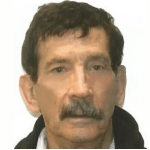
Howard Stein is a Professor in the Department of Afroamerican and African Studies (DAAS) and the Dept. of Epidemiology at the University of Michigan. He is a development economist educated in Canada, the US and the UK. He has published more than a dozen books and edited collections and more than 100 journal articles, book chapters and reviews. He has held various academic appointments at the University of Dar Es Salaam, Tanzania; Hitotsubashi University, Japan; Sussex University, UK; Trinity College, Ireland; University of Lisbon, Portugal; and University of Leiden, Netherlands. He has undertaken research in a variety of African countries on topics like foreign aid, finance and banking, neoliberalism, the methodology of Randomized Controlled Trials, health and gender, climate change, industrial policy, export processing zones, agricultural policy, African overpayment on sovereign bond issues, poverty and rural property right transformation, income inequality, Chinese economic relations and the institutionalization of neoclassical economics.
Ingrid Harvold Kvangraven
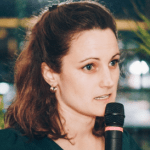 Ingrid Harvold Kvangraven is Lecturer in International Development at King’s College London. Her research is broadly concerned with debates about uneven development, dependency and imperialism, critically assessing the economics field itself, in particular from an anti-colonial perspective, and the role of finance in uneven development. Underlying these interrelated strands is Ingrid’s strong interest in exposing and countering Eurocentric views of economic processes and opening up space for theorisation from the South. She is the founder and editor of the blog Developing Economics, co-founder and Steering Group Member of Diversifying and Decolonising Economics (D-Econ), and on the Management Committee of Association for Heterodox Economics. She is co-author, with Carolina Alves, Devika Dutt and Surbhi Kesar, of the Polity book Decolonizing Economics – An Introduction (forthcoming, 2024).
Ingrid Harvold Kvangraven is Lecturer in International Development at King’s College London. Her research is broadly concerned with debates about uneven development, dependency and imperialism, critically assessing the economics field itself, in particular from an anti-colonial perspective, and the role of finance in uneven development. Underlying these interrelated strands is Ingrid’s strong interest in exposing and countering Eurocentric views of economic processes and opening up space for theorisation from the South. She is the founder and editor of the blog Developing Economics, co-founder and Steering Group Member of Diversifying and Decolonising Economics (D-Econ), and on the Management Committee of Association for Heterodox Economics. She is co-author, with Carolina Alves, Devika Dutt and Surbhi Kesar, of the Polity book Decolonizing Economics – An Introduction (forthcoming, 2024).
Marilyn Ossome
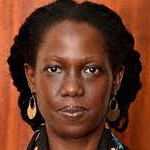 Marilyn (Lyn) Ossome is Associate Professor and Director at the Makerere Institute of Social Research (MISR), Makerere University, and brings a wealth of experience from her tenure at institutions like Wits University and Yale University. Holding a Ph.D. in Political Studies from Wits University, her expertise spans feminist political economy and theory, with a focus on gendered labour, land issues, the modern state, and gender-based violence. Actively engaged in academia and activism, she serves on various boards, is editor of Feminist Africa, co-edits the Journal for Contemporary African Studies, and sits on the editorial board of Agrarian South: Journal of Political Economy. Lyn Ossome is affiliated with several feminist and agrarian organisations and movements across Africa.
Marilyn (Lyn) Ossome is Associate Professor and Director at the Makerere Institute of Social Research (MISR), Makerere University, and brings a wealth of experience from her tenure at institutions like Wits University and Yale University. Holding a Ph.D. in Political Studies from Wits University, her expertise spans feminist political economy and theory, with a focus on gendered labour, land issues, the modern state, and gender-based violence. Actively engaged in academia and activism, she serves on various boards, is editor of Feminist Africa, co-edits the Journal for Contemporary African Studies, and sits on the editorial board of Agrarian South: Journal of Political Economy. Lyn Ossome is affiliated with several feminist and agrarian organisations and movements across Africa.
Radha Upadhyaya
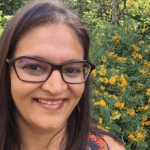
Radha Upadhyaya is Research fellow at University of Nairobi – Institute for Development Studies (research) and Dept. of Economics & Development Studies (teaching). Radha has over 15 years of teaching experience with particular focus on research philosophy & methods and finance & development. She has written extensively on the Kenyan banking sector, banking regulation in East Africa, African firms, African entrepreneurs, learning in African enterprises and informality. She is currently working on projects on regulation of digital credit, contemporary relevance of SACCOs, and fintechs and the power of banks. Radha is committed to improving the research skills of African social science students. As seminar convener at IDS, Radha has organized over 40 seminars from February 2019 to bring together scholars on the Global South. Radha has robust financial sector expertise as a qualified CFA charterholder, former bank director and was on the governance body of FSD Kenya for 10 years.
Redge Nkosi
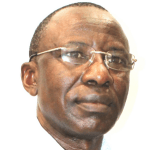
Redge Nkosi is an Executive Director and Head of Research for Firstsource Money, an economic policy and advisory firm specialising in Money, Banking and Macroeconomics. He is also an executive board member of the London-based Monetary Reform International, an international organisation that aims to reform the current global monetary and banking systems. Previously, Nkosi worked as an economic and trade official in the Republic of South Africa’s Ministry of Trade and Industry and the Ministry of Transport’s agency as an executive head of maritime economy and research. Within the public sector, he also worked as a senior manager of research and strategy for a transport and logistics state-owned enterprise, Transnet. As an economist and former banker, Nkosi continues to pursue research in banking, macroeconomics, and money as they relate to Africa and the developing economies in general.
Yao Graham
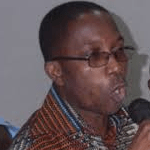
Yao Graham is the Coordinator of Third World Network-Africa, a pan-African policy advocacy organisation based in Accra, Ghana. Yao studied law at the University of Ghana, the Free University of Brussels (VUB), Belgium and the University of Warwick, Coventry, UK where he obtained his PhD. He has worked on African and international development issues for many years – as a public intellectual and activist, government official and journalist. He has worked on African minerals and development issues for more than two decades. International trade and investment and minerals and development issues have been particular areas of focus in his work at TWN-Africa. He has written and lectured extensively on mineral policy issues. Yao is the Africa Editor of the journal Review of African Political Economy (ROAPE) and was the founding editor of the Ghanaian bi-weekly newspaper Public Agenda.
